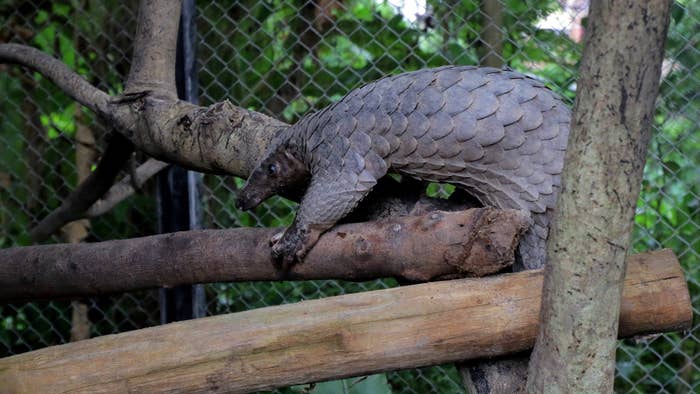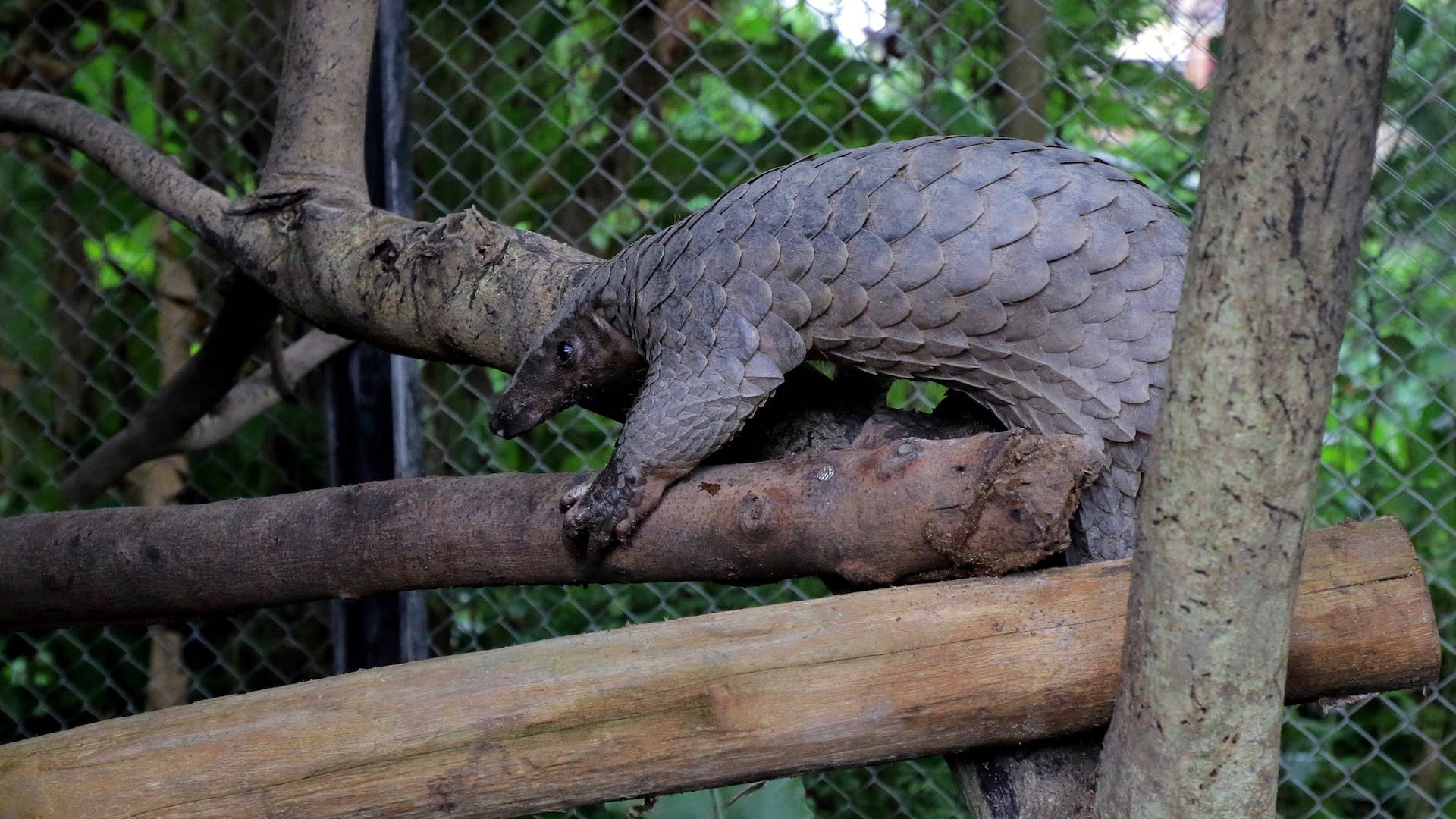
As cases of the coronavirus continue to grow, scientists around the world are conducting research in an attempt to prevent a full-blown global pandemic. Among the most biggest questions plaguing experts? How did the deadly virus transmit from animals to humans. A team of Chinese researchers may have found the answer.
Scientists at South China Agricultural University have identified the endangered pangolin as a possible intermediary host. According to the Chicago Sun-Times, researchers tested 1,000 samples from wild animals, and determined that virus genome sequences separated from pangolins was 99 percent identical to those taken from people who've been diagnosed with coronavirus. Many researchers believe the outbreak emerged from bats and then spread to another species (likely the pangolin) before infecting humans.
But not every expert is convinced that the pangolin is the link.
"You can only draw more definitive conclusions if you compare prevalence (of the coronavirus) between different species based on representative samples, which these almost certainly are not," Dirk Pfeiffer, professor of veterinary medicine at Hong Kong's City University, explained to Reuters.
The pangolin is a highly trafficked mammal that is facing extinction due to the value of its meat and scales; the latter of which is used in traditional Chinese medicine. The Center of Biological Diversity reports that in 2016, nations around the world agreed to ban the international commercial trade of the animal; however, they continued to be sold in Asian and African countries where they are considered a delicacy.
It's unclear if pangolins were being sold in December at a wildlife market in Wuhan, China, where coronavirus is believed to have materialized. In wake of the outbreak, health and wildlife organizations have called on China to shut down wildlife markets, or risk another crisis.
"While closing wildlife markets could have a major impact, bans alone will not stop the illegal wildlife trade if demand persists," The World Wildlife Fund said in a statement. "This health crisis must serve as a wake-up call for the need to end unsustainable use of endangered animals and their parts, as exotic pets, for food consumption and for their perceived medicinal value."
As of Friday, there were more than 31,000 confirmed cases of the coronavirus around the world; the death toll has risen to 638—all but two of those deaths occurred in mainland China.


